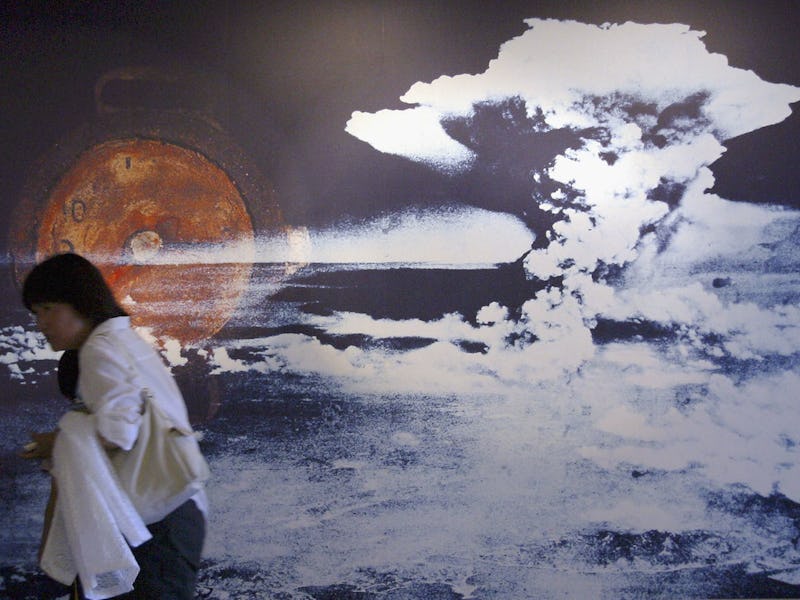Do Nuclear Bombs Matter? 70 Years After Hiroshima, Probably Not
We don't need to be this afraid of nuclear weapons.

Regarding nuclear weapons, alarmists have a favorite quote from Albert Einstein, “The release of atom power has changed everything except our ways of thinking.” All due respect to Albert, but on the 70th anniversary of Hiroshima many scholars want to remind the public that we don’t necessarily need to change our thought process. The common conception of the nuke as an exceptional weapon might be dangerous and unreasonable.
This line of argumentation has its roots in horrible statistics: The U.S. killed more Japanese during the fire bombing of Tokyo than with either nuclear bomb and, perhaps, both combined. Oppenheimer may have uttered that great line — “I am become Death, the destroyer of worlds” — but atomic energy doesn’t have a monopoly on horror or large scale devastation. This is why today marks not only the 70th anniversary of a detonation and a tragedy, but also of the intellectual movement against nuclear exceptionalism.
Here’s what the scholars have to say:
John Mueller, Mershon Center and Department of Political Science, Ohio State:
Despite endlessly repeated predictions, remarkably few countries have taken advantage of the opportunity to develop nuclear weapons, and the sporadic proliferation that has taken place has, contrary to urgent forecasts, been of very little consequence. A key reason for this is that the possession of such expensive armaments actually conveys in almost all cases rather little advantage to the possessor. In the main they are difficult to obtain, militarily useless, and a spectacular waste of money and scientific talent.
Francis J. Gavin, Belfer Center for Science and International Affairs, Harvard:
Should the notion of nuclear alarmism be accepted at face value? In my view, the answer is no: its claims are overstated and, in some cases, wrong, emerging from a poor understanding of the history of nuclear proliferation and nonproliferation.
Ward Wilson, Senior Fellow and Director of the Rethinking Nuclear Weapons Project at the British American Security Information Council:
We were misled in the first instance, developed a wildly exaggerated sense of nuclear weapons’ power, and then spent forty years too frightened by the Cold War to re-examine our initial assessments. By the time the Cold War had ended, those initial reactions had become well worn concepts and hardened beliefs. It’s only in the last twenty years that some scholars have begun to rethink those original ideas.
UPDATE : Of course, not everyone thinks nuclear weapons are just chill. Scientific American’s John Horgan makes the point that we incorrectly included him in this post when we linked to a story he wrote about nuclear fears in which he has a dialogue with Stewart Brand. “Brand apparently thinks our fears of nuclear weapons -— as well as of nuclear energy — have been irrationally inflated. If I have mischaracterized his views, I trust he’ll correct me,” he writes. However, that’s just one line in a much bigger story, and Horgan’s overall conclusion is “We fear nuclear weapons too little, not too much.”